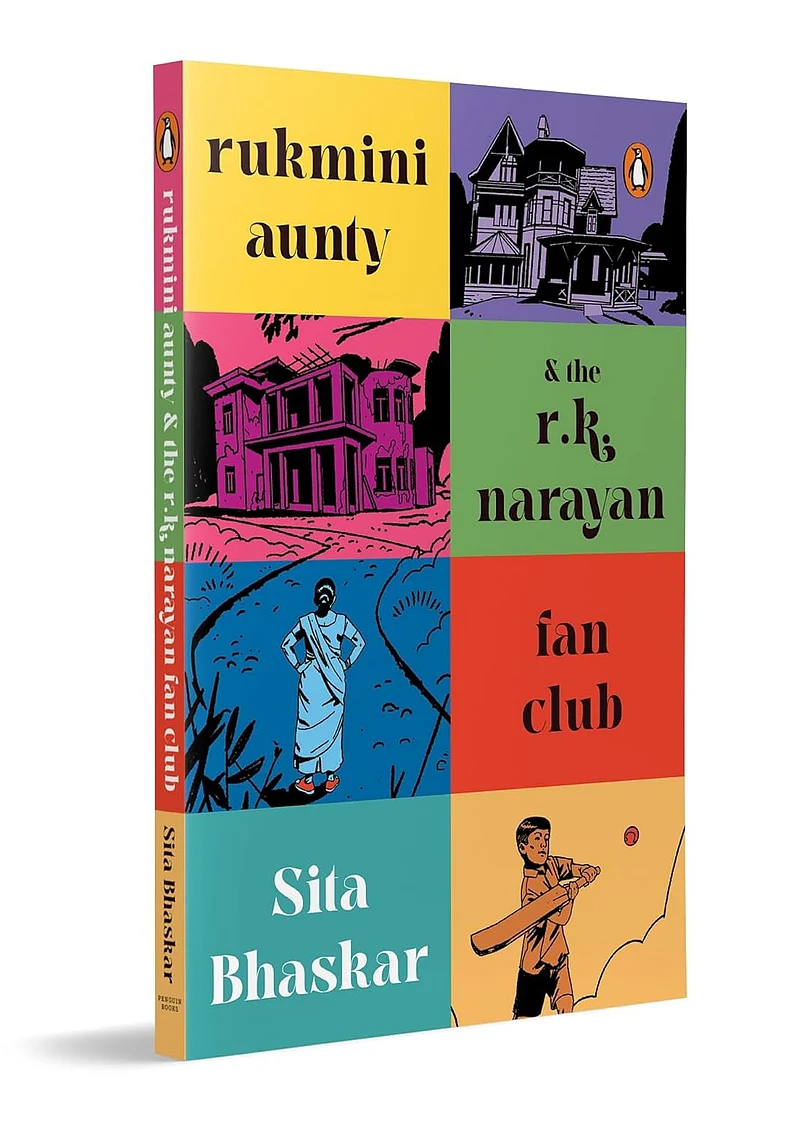
A neighbourhood’s quest to save R.K. Narayan’s former home blends fiction, non-fiction, and Mysuru’s rich literary history.
Its characters form a modern conglomeration of Malgudi’s finest, navigating quirky bureaucracies, family drama, and cultural contrasts.
Though sometimes insider-ish, it remains an affectionate portrait of a city that is an entire ethos and school of writing.
Much like Rukmini Aunty, my house is within a stone’s throw of the former home of author R.K. Narayan in the Yadavgiri neighbourhood of Mysuru. The city is also abuzz with a multitude of similar book clubs though none are really devoted to R.K. Narayan, more to contemporary literature, and out of this arises the heady festivities of the Mysuru Literature festival and others like it in both Kannada and English.
Hence, from the Mysorean point of view, the book is a blend of fiction and non-fiction. However, if you live in Mysuru long enough, you realise that R.K.Narayan was actually a writer of non-fiction. There is something about the erstwhile kingdom, sitting at the cusp of cultures and history, on the banks of the lush and sacred Kaveri, at the feet of Chamundibetta, nestled by Nagarhole and and subject to the occasional panther, krate, peacock, and tiger visits, that is a capsule of time and characterisation.
While the English-language audiences know only of R.K. Narayan, Mysuru has nurtured giants like Kuvempu, the Karnataka state poet, A.K. Ramanujan, the late great S.L. Bhyrappa, Anasuya Shankar, Kamala Markandaya, and Abdul Rasheed, to name just a few. It is consequently both the boon and the curse of every Mysorean writer (including this reviewer) to aspire to the heights of these hallowed forerunners and to cultivate a humility that is both physical and notional, such as this book exhibits, to dwell unabashedly in their shadows.
The story begins with ruing a dilapidated house that spoils the view from Rukmini aunty’s dream home. Until they discover it is the former residence of legendary writer R.K. Narayan. Inspired by her visit to Mark Twain's preserved home in Hannibal, Missouri, Rukmini forms a neighbourhood group to save the house from demolition. It weaves into the narrative an interesting timeline of the legendary writer’s life, his movements until his death and the fate of the house after.
It also intersperses his characters into the fictional lives of the members of the club who set out to save the house. Characters such as Swami, a mischievous boy who wants to return from America with his grandmother and live in Mysuru only to decamp and hide in Narayan's house; Nitya, whose American father insists on fulfilling a childhood vow; Kamini, a political science teacher secretly working at her father's school; and Mukta, an American-Indian woman who approaches romance with a horoscope instead of a dating app. The characters are a modern conglomeration of Malgudi’s finest and in the weaving of the tale modern and historic past clash more than once with the quirky bureaucracies that typified India both then and now.
As Rukmini Aunty's group navigates the red tape, family dramas, and cultural clashes between India and America, they discover the city has purchased the house. The commissioner, inspired by Shakespeare's preserved home, commits to restoring it as a museum, with Rukmini Aunty's group volunteering as future docents.
Sita Bhaskar captures the essence of contemporary Mysore beautifully: the circle where five roads meet, the corporation office's labyrinthine corridors, the yoga culture, and even the lemon tea vendor under the fourth tree. The gentle irony, the focus on middle-class aspirations, the small absurdities of daily life , the chatterati of neighbours who know everything about each other yet maintain certain pretences are all culturally accurate.
The book honours R.K. Narayan's legacy while setting forth a new one, furthering Malgudi into the Mysuru of today, if you will.
The flaw of the book is that it is an inside joke that doesn’t entirely allow the onlooker in. The multiple storylines sometimes feel disconnected, the dialogue assumes too much familiarity with the chaotic cast of characters, though it is woven very well back to the central thread. Perhaps that's also very Mysorean—a city where everyone's story intersects at unexpected traffic circles.
It is a cosy, familiar book, an affectionate portrait of a city that's more than just a footnote in India’s literary history. It is an entire ethos and school of writing. And hopefully, reading.
Tara Das is a Buddhist scholar & therapist, founder of Shamah | शम:
She has authored 10 books, and is also a contemplative AI researcher who explores human and machine consciousness.





















